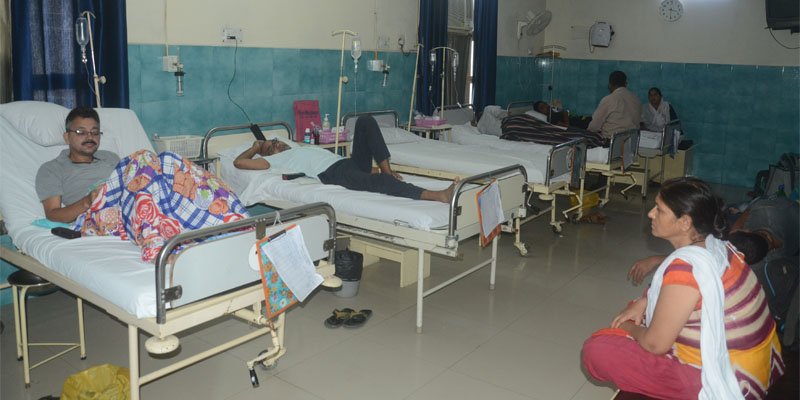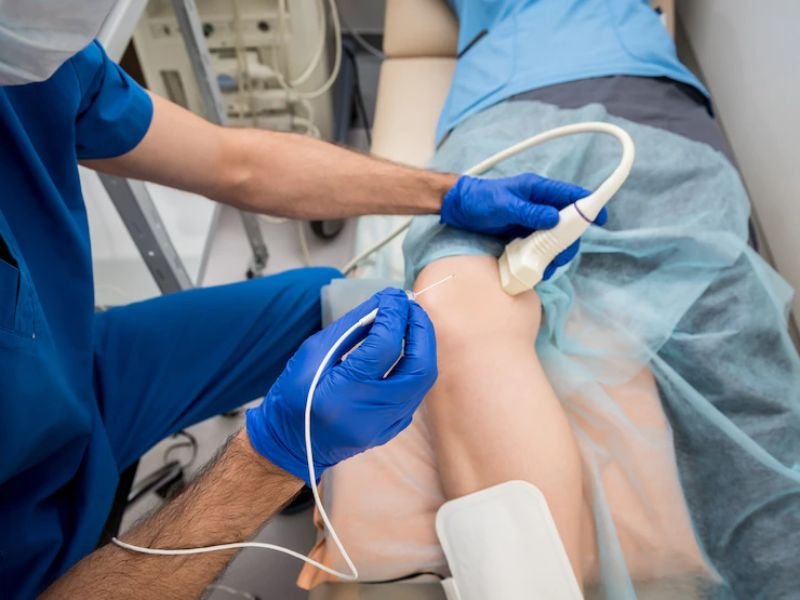
OVERVIEW
Surgery, radiation, drugs, and other therapies are used in cancer treatment to eradicate cancer, reduce cancer, or halt the spread of cancer.
There are numerous cancer therapies that Lucknow Cancer Institute makes use of. You might undergo one treatment or a combination of treatments, depending on your specific circumstance.
There are numerous cancer therapies that Lucknow Cancer Institute makes use of. You might undergo one treatment or a combination of treatments, depending on your specific circumstance.
WHY IT’S DONE
The purpose of cancer treatment is to eliminate your cancer and provide you a normal life expectancy. Depending on your particular circumstances, this might or might not be doable. If a cure is not achievable, your treatments may be used to reduce the size of the cancer or slow its growth in order to prolong your period of symptom-free living.
Cancer treatments may be used as:


Primary Treatment
A primary treatment aims to either totally eradicate the cancer from your body or to eradicate all cancer cells.
Any cancer treatment can be employed as the first line of defence, however surgery is the most popular primary cancer treatment for the most prevalent cancer forms. You might get one of those treatments as your main course of treatment if your cancer is highly susceptible to radiation therapy or chemotherapy.
Any cancer treatment can be employed as the first line of defence, however surgery is the most popular primary cancer treatment for the most prevalent cancer forms. You might get one of those treatments as your main course of treatment if your cancer is highly susceptible to radiation therapy or chemotherapy.

Adjuvant Treatment
Adjuvant therapy aims to eliminate any cancer cells that might still exist after primary treatment to lessen the likelihood that the disease will return.
Adjuvant therapy can be applied to any cancer treatment. Chemotherapy, radiation therapy, and hormone therapy are examples of common adjuvant treatments.
Neoadjuvant therapy is similar, but it involves administering medications prior to the primary therapy in an effort to facilitate or improve the effectiveness of the latter.
Adjuvant therapy can be applied to any cancer treatment. Chemotherapy, radiation therapy, and hormone therapy are examples of common adjuvant treatments.
Neoadjuvant therapy is similar, but it involves administering medications prior to the primary therapy in an effort to facilitate or improve the effectiveness of the latter.



Palliative Treatment
Palliative care can help with cancer-related symptoms as well as side effects from therapy. Symptom relief techniques include hormone therapy, chemotherapy, radiation, and surgery. Other drugs may help with symptoms including pain and breathlessness.
Palliative care can be administered along with other cancer-curing procedures.
Palliative care can be administered along with other cancer-curing procedures.

WHAT YOU CAN EXPECT
There are numerous cancer therapies available at The Lucknow Cancer Institute. Your cancer’s type and stage, overall health, and personal preferences are just a few of the variables that will affect your treatment options. You can assess the advantages and disadvantages of each cancer treatment with the help of your doctor to decide which is best for you.
Cancer treatment options include:


Surgery
Surgery’s main objective is to completely remove the malignancy, if possible.

Chemotherapy
Drugs are used in chemotherapy to kill cancer cells.



Radiation Therapy
High-powered energy beams, such as X-rays or protons, are used in radiation therapy to kill cancer cells. Radiation therapy devices can either be implanted inside or outside of your body (external beam radiation) (brachytherapy).

Bone Marrow Transplant
The substance inside your bones called bone marrow is where blood cells are created from blood stem cells. Your own bone marrow stem cells or those from a donor can be used in a bone marrow transplant, often known as a stem cell transplant.
Your doctor can treat your cancer with stronger doses of chemotherapy; thanks to a bone marrow transplant. Additionally, defective bone marrow may be replaced with it.
Your doctor can treat your cancer with stronger doses of chemotherapy; thanks to a bone marrow transplant. Additionally, defective bone marrow may be replaced with it.

Hormone Therapy
Your body’s hormones can fuel certain cancers. Breast cancer and prostate cancer are two examples. It may be possible to inhibit the growth of the cancer cells by eliminating those hormones from the body or by blocking their effects.



Immunotherapy
The biological therapy known as immunotherapy makes use of the immune system to treat cancer. Because your immune system does not detect cancer as an outside invader, it can thrive unchecked inside your body. Your immune system can “see” the cancer and fight it with the aid of immunotherapy.

Cryoablation
With this procedure, cancer cells are frozen to death. A slender, wand-like needle (cryoprobe) used in cryoablation is introduced through your skin and right into the malignant tumour. The cryoprobe is pumped with a gas to freeze the tissue. The tissue is then given time to defrost. During the same therapy session, the freezing and thawing procedure is performed numerous times to destroy the cancer cells.



Radiofrequency Ablation
During this procedure, cancer cells are heated with electrical energy, which kills the cells. A tiny needle is inserted by a physician via the skin or an incision and into the cancer tissue during radiofrequency ablation. The surrounding tissue heats up when high-frequency radiation goes through the needle, destroying the cells in the area.

Clinical Trials
Clinical trials are research projects that look at novel cancer treatment strategies. There are thousands of cancer clinical trials ongoing.



Targeted Drug Therapy
Targeted medication therapy focuses on particular cancer cell defects that enable cancer cells to survive.

